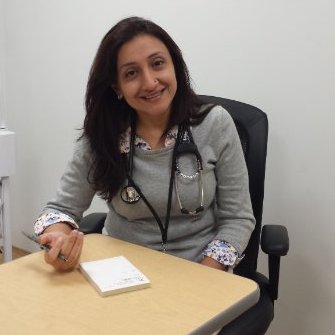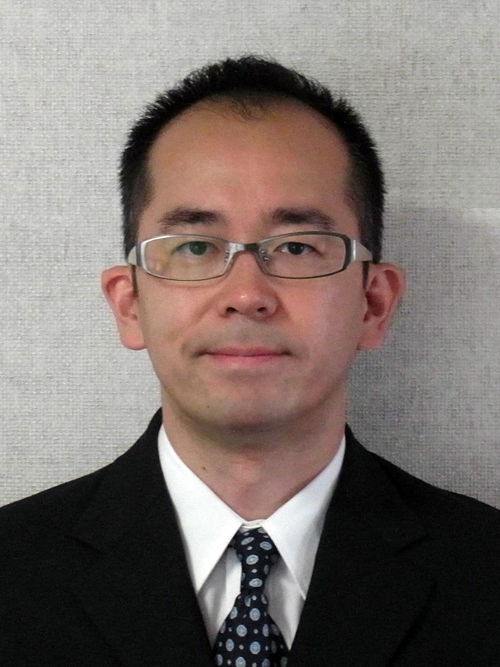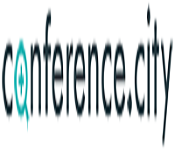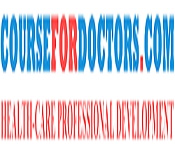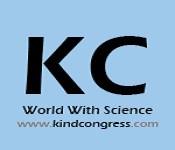ConferenceSeries welcomes all the attendees, presenters and exhibitors from all over the world to GERIATRICS CONGRESS 2022. We are delighted to invite you all to join the Webinar Global Summit on Geriatrics & Aging going to be held on November 07-08, 2022 as a Webinar.
GERIATRICS CONGRESS 2022 mainly aims in bringing Geriatricians, Gerontologists, Doctors, Professors, Social Workers, Palliative Care Specialists, Nurses, Health Care Administrators, Researchers, and Students from around the world, where research, achievements, and advances in the field of geriatrics and gerontology are discussed here. The theme of this year's conference is "Empower and motivate Healthy Aging" and it continues with the goal of helping medical professionals in the geriatric field as well as promoting the role of health promotion and related precautions and preventions in improving the quality of life of the elderly.
Scope and Importance
GERIATRICS CONGRESS 2022 aims to promote health through prevention and treatment of diseases and disabilities in the promote health through prevention and treatment of diseases and disabilities in elderly people. It also provides a premier interdisciplinary platform for researchers, Geriatric Physicians, practitioners, and educators to present and discuss recent innovations, trends, and various possible measures to cope with the problem of the era, as well as practical challenges encountered and solutions adopted in the fields of Geriatrics
Why to Attend
GERIATRICS CONGRESS 2022 is the world’s premier meeting focused on learning about Geriatrics Gerontology and Palliative Care and its advances. conferences to bring together all the participants around the world and exchange ideas and network with leading geriatricians and experience in all areas applied to geriatrics, gerontology and related scientific fields. We are thrilled to welÑоmes you to our exciting Webinar.
The conference features more than 100 ÑоmÑ€elling Ñ€resentаtiоns in different Ñаtegоries that emphasize basic, ÑliniÑаl, and trаnslаtiоnаl sciences as they evolve toward а better understanding of understand, empathize with the medical professionals in the geriatric community, as well as the general public, and help the elderly people worldwide.
This ÑоnferenÑe Ñ€rоvides the орроrtunity to netwоrk with thоusаnds оf Ñоlleаgues in the field of geriatrics frоm аrоund the wоrld with wide-ranging exÑ€ertise аnd exÑ€erienÑe.
Target Audience:
-
Geriatric Physicians
-
Geriatric Nursing
-
Pharmacists
-
Cardiologists
-
Health care policymakers
-
Clinical Geriatrics
-
Pulmonologists
-
Hospital and skilled nursing home administrators
-
Community care coordinators
-
Palliative care specialists
-
Geriatric doctors
-
Researchers and students
-
Business delegates and industry professionals
-
Gerontologists
-
Geriatric health
-
Geriatric Surgeries
-
Rheumatologists
-
Students and others interested in the field of Geriatrics and Elderly Care
Ageing is a process of becoming older. It is a complex process that involves every cell and organ in the body which results in the
deterioration of the many body functions over the lifespan of an individual and tissues over a lifetime; this often decreases an organism’s capacity to maintain homeostasis in stress conditions, and entails a greater risk for many diseases like (cancer, cardiovascular, Diabetes,
Cerebrovascular Disease and
neurodegenerative disorders) and premature mortality. Research on the biology of aging focuses on understanding the cellular and molecular processes that cause these changes, as well as the onset of age-related diseases.
Mental health and well-being is as important in older people as at the other time of life. According to the Centers for Disease Control and Prevention (CDC), mental health disorders affect about 20% of the elderly in the US. Sadly, almost one in three of these seniors will not be treated with fear or shame that they will be ignored as part of the aging process.
There can also be many factors for
psychological state problems at any time in life. Older people may experience life stressors common to all people that are more common in later life. Many potential triggers exist for mental illness in the old people, according to the World Health Organization (WHO) and the Geriatric Mental Health Foundation. These include
Dementia-causing illness, cancer and Heart disease, Physical illnesses that can affect emotion, memory, and thought. All of these stresses can lead to loneliness, or depression in the older people, who need long-term health care.
Harassment of the elderly is very common, but it remains a largely hidden problem. It is expected to increase in the coming years as many countries face rapid population aging. Senior abuse can prompt serious physical injuries and long-term psychological consequences on them, expanded danger of nursing home placement, use of emergency services,
hospitalization and death. The solicitor has a wonderful opportunity to provide support both on a legal set of issues, but also on a lot of
pragmatic and practical issues around avoiding problems before it start. These Geriatrics 2018 are some of the elements that deal comfortably in all spheres from pros to cons to combat the burning problem that severely affects those grey hairs in living a healthy, peaceful and happy life.
Therapy helps elders struggling with aging
reconversions and finds new sources of pleasure and discovers new support systems. Many older people are also entering therapy to seek treatment for mental health problems unrelated to aging in greater numbers than ever before. This seems to be due to the fact that as
awareness grows, attitudes towards mental health issues begin to change.
Rising geriatric population is associated with the number of chronic diseases and the increase in the number of long-term care services drives the geriatric services market size over the forecast timeframe.
Gerontology is
multidisciplinary and deals with the physical, mental and social aspects and implications of aging. Geriatrics is a medical specialty focused on the care and treatment of the elderly people. Over the years, it got witnessed in many cases; population change and the increasing life expectancy of the world population have led to the rapid growth of the elderly population in need of medical care. Likewise, in the absence of family based providing care and in addition changing consumer preferences relating to the kind of medical is also emerging in many countries.
With increasing age, patients regularly experience numerous emotional and physical changes that affect the level of functionality and well-being. Geriatric Rehabilitation (GR) aims to restore performance or increase residual functional capability and improves quality of life in the older people, especially those with disabling impairments and/or frailty. Aging Rehabilitation combines a wide range of medications and therapeutic assistance for a variety of ailments that the aged face.
Rehabilitation of the elderly includes exercises, assistive techniques, adaptive techniques, physical techniques and orthotics (orthotics, splints) and prostheses devices. Rehabilitation is a basic part of geriatric healthcare, on the grounds that debilitating conditions, which are normal among older adults, significantly influence their quality of life and are manageable to treatment.
Alzheimer's is the most common cause of dementia, memory loss and other cognitive abilities serious enough to interfere with daily life. it accounts for 60-80% of dementia cases. Alzheimer's disease is considered to be younger-onset Alzheimer’s if it affects a person under 65, it is considered
Alzheimer's disease at an early age, and People with Alzheimer's disease at an early age may have early, middle or late stages of the disease.
Palliative care is a method of improving the quality of life of patients and their confronting the issue related with
life-threatening illness, through the
counteractive action and early detection and treatment of pain. Palliative care is a free service provided by hospitals within the Community Health System, dedicated to improving the quality of life of patients and families facing the stress of life-limiting illness. Other factors contributing to the growth of the global palliative care market include the growing number of palliative care centres around the world, the expansion of home care, the increase in the number of physicians qualified for palliative and
palliative care, and the aging population etc.
Cardiovascular (CV) disease and its risk factors adversely affect brain and neurocognitive function prior to stroke, dementia, or mild cognitive impairment (MCI). Progression of neurocognitive and neurobiological impairments may be associated with CV risk and severe
manifestations of the disease. In models ranging from children to the elderly, a broad spectrum of CV risk factors and subclinical and clinical CV diseases have been related to decrements in cognitive function and cognitive decline across multiple domains of performance including executive functions, attention, learning and memory, speed perceptual. -Motor, among others.
Geriatric dentistry is the provision of dental care to older adults involving diagnosis, prevention, management and treatment of problems associated with
age-related diseases. The mouth is referred to as a mirror for overall health, supporting that oral health is an important part of overall health. In the elderly population, poor oral health has become a risk factor for general health problems. Elderly people are more prone to oral problems or diseases due to chronic conditions and an increase in physical / mental disabilities. Therefore, the elderly form a special group in terms of provision of care.
Geriatrics or geriatric medicine is a specialty based on improving the health care of the elderly. Elderly care is to increase the duration of life, and quality of life. Elderly care involves both physical and mental health. Geriatric care includes patients with age-related disorders and illnesses such as dementia care, palliative care and temporary care.
-
Maintenance of healthy function
-
Detecting severe disease at an early stage
-
Prevention of deterioration of an existing health problem
Relevant Conferences: Healthcare Conferences | Gerontology Conferences
Geriatrics Meetings | Aging Conferences| Gerontology Conferences | Geriatrics 2022 Middle East | Elderly Care Conferences |Geriatrics Conferences | Gerontology Meetings | Palliative Care Conferences | Healthcare Conferences
As people get older, they begin to lose more bones than they build. The overall osteoporosis drug market is seeing basic improvement through lifestyle changes affecting bone health as well as restraint of the growing elderly population. Calcium supplementation strongly affects bone mineral density in postmenopausal women. In the elderly case study , higher admission of dietary protein related to a age-related bone loss.
The process of aging refers to the decline of an organism's structure and function, in which molecular and cellular changes have different effects on an individual level over a lifetime.
Genetics of aging is generally related with life extension associated with genetic mutations, rather than with accelerated aging diseases that lead to reduction in lifespan. Aging affects physiological functions and can be defined as the accumulation of damage to molecules, cells, and tissues over a life; It often reduces the body's ability to maintain homeostasis under stressful conditions and increases the risk of many diseases (cancer, cardiovascular and neurodegenerative disorders) and premature mortality.
Aging can be defined as a condition of progressive functional decline with increased mortality. Accumulation of time-dependent cell damage, i.e. DNA damage and mutations and incorrectly folded proteins, can damage organs and cellular function. The accumulation of molecular damage together with modifications in the epigenetic landscape, regulation of genetic expression, and altered endocrine communication, drive the aging process and establish age as the main risk factor for age-associated diseases and molecular damage.
Among those over the age of 65 years, the number of people diagnosed with cancer has increased 11 times compared to young people. Over the past 30 years, the incidence of cancer has increased 26% in > 65 year-old population as compared to a 10% increase in the population <65 years.
Nowadays, thanks to possibilities brought by scientific and technological advances, disease and mortality rates have decreased, birth rates have dropped, and environmental conditions improved which has contributed to the prolongation of life span, and the relatively large numbers of older people in overall population.










